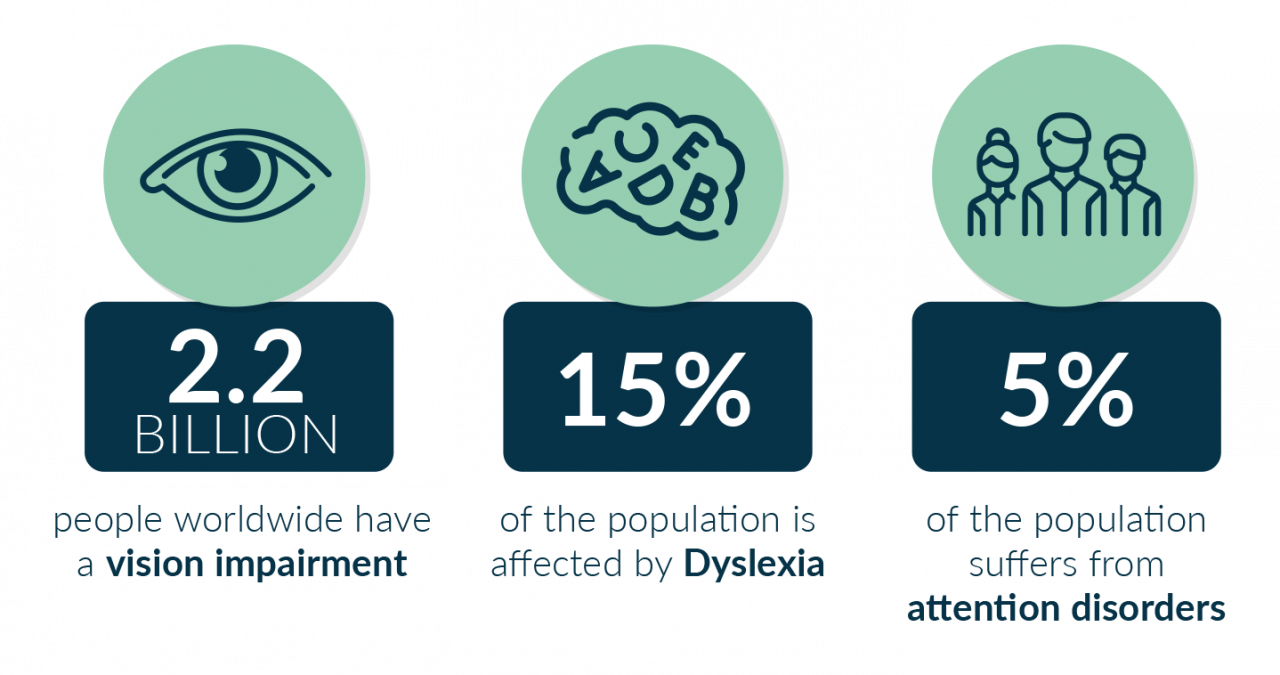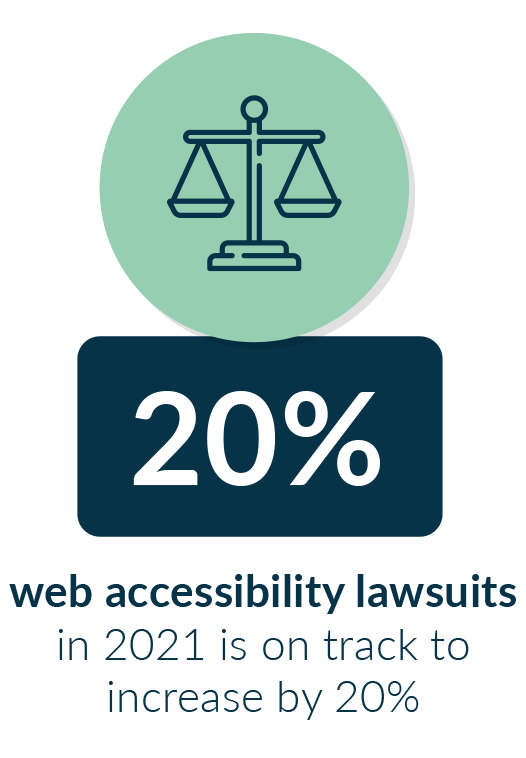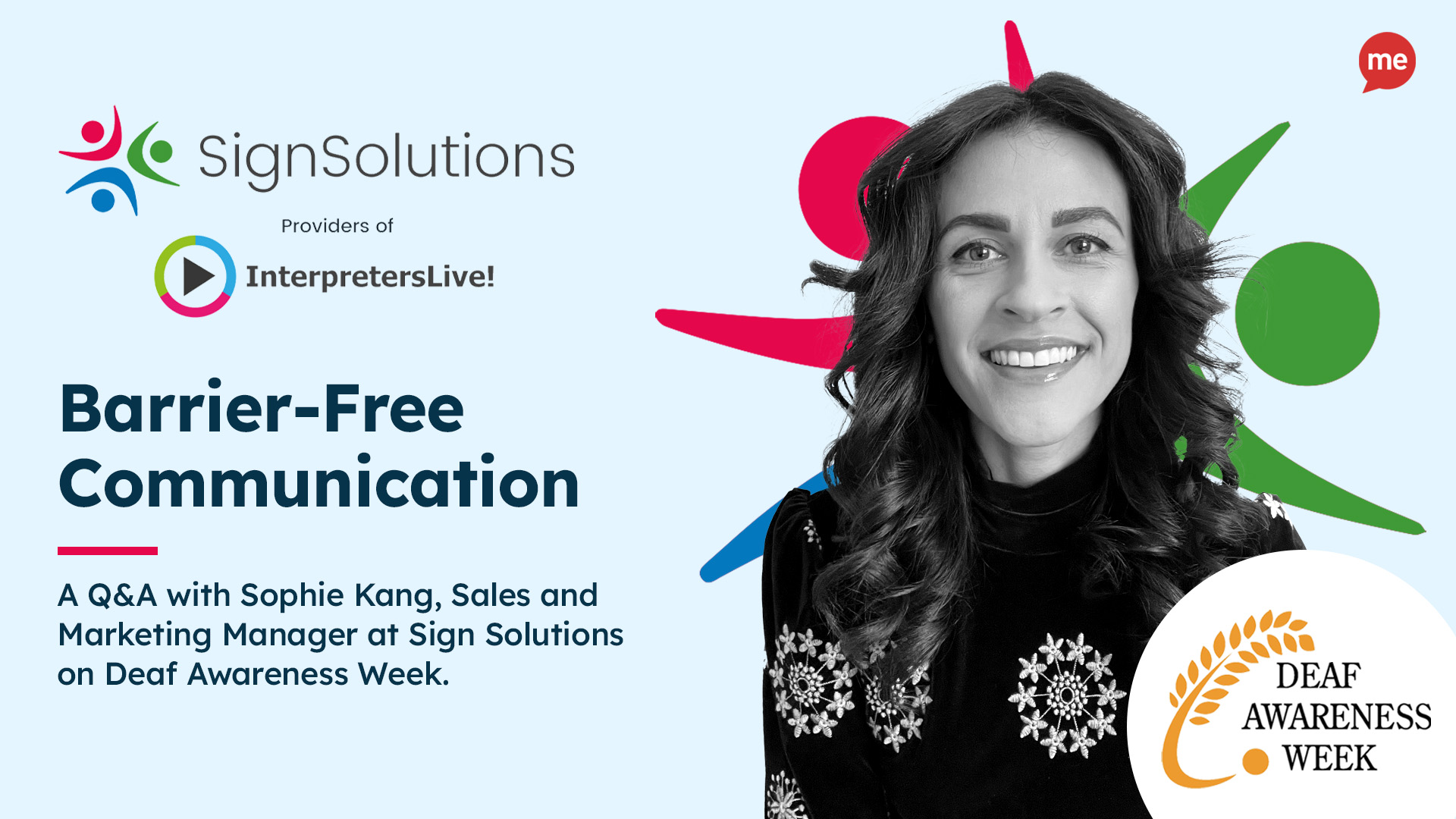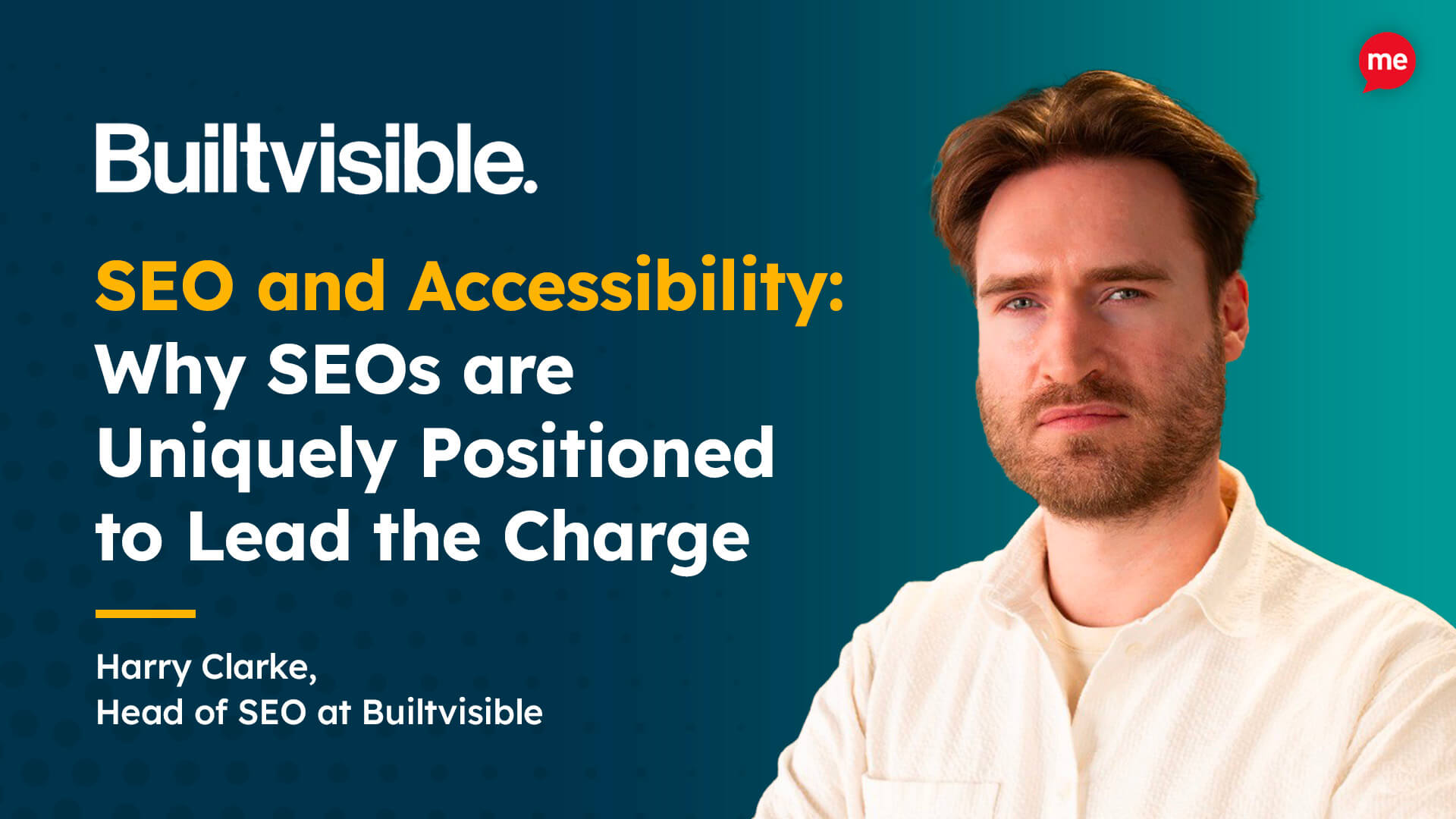Digital agencies have comprehensive knowledge and significant experience in the online marketing world. They help build stronger brands by designing kickass websites, running campaigns, and conducting market research to help businesses become more competitive. However, when digital agencies aren’t set up for online inclusion and web accessibility isn’t a core part of the strategy, their clients could be missing out on hundreds of thousands of customers.
The simple fact is that many digital platforms still lack effective accessibility solutions that create equitable online experiences. Forbes Magazine estimates there are around 1.3 billion people with disabilities worldwide, although the World Health Organization suggests this figure is closer to 1.6 billion. Current statistics indicate that 1 in 5 people has a disability that could affect web accessibility.
Who Needs Support Online
Not all disabilities are visible. Anyone lacking the tools they need to understand or communicate is at a significant disadvantage in the online world. Access barriers affect anyone with:
Decreased Vision – At least 2.2 billion people globally have a vision impairment.
Learning Difficulties – Dyslexia alone affects at least 15% of us.
Autism – Autism rates vary by nation, but affect between 1 in 54 and 1 in 100 people.
Language Differences – 87% of the global population speaks a first language other than English. Even in English-speaking nations, up to 1 in every 5 households speaks a language other than English at home.
Neurological Conditions – One in four people will be affected by mental or neurological disorders at some point in their lives.
Attention Disorders – Around 5% of the population suffers from attention disorders like ADHD.
Physical Disabilities – Millions of individuals have physical disabilities that make using standard keyboards and on-screen navigation difficult.

It is the role of digital agencies to keep up with all of the latest trends and optimise their client’s websites for performance. It is therefore essential that new websites adopt an inclusive design.
Website Accessibility: The Build VS User Experience
Poorly designed websites make it difficult for people with disabilities to access the information and services they need. It doesn’t matter how good the website looks, if it’s not built with accessibility in mind, the site will fall short because many visitors cannot:
Read the copy due to font, text size, or text spacing.
Read the copy due to poor colour contrasts between background and foreground.
Use a mouse or touchpad.
Focus on the relevant section of the copy.
Concentrate due to distracting graphics and image carousels.
Responsibility & Accountability
 Global accessibility guidelines exist to ensure those who face access barriers are not excluded from online life. The Web Content Accessibility Guidelines (WCAG) are the gold standard when it comes to web accessibility. All businesses should aim for compliance level AA, but compliance is a legal requirement for many government and public-facing organisations.
Global accessibility guidelines exist to ensure those who face access barriers are not excluded from online life. The Web Content Accessibility Guidelines (WCAG) are the gold standard when it comes to web accessibility. All businesses should aim for compliance level AA, but compliance is a legal requirement for many government and public-facing organisations.
As technological advancement continues, WCAG recommendations evolve, legal requirements become increasingly stringent, and accessibility factors are ever more critical for SEO. Therefore, digital agencies need to advise their clients on aspects for overall optimisation and compliance in addition to user experience.
According to research by UsableNet Inc., the number of web accessibility lawsuits in 2021 is on track to increase by 20% year on year. As digital agencies are ultimately responsible for their clients online content, they risk accountability issues if a website is not compliant and a lawsuit arises.
Providing Choice to Customise Online Experiences
The work shouldn’t stop at inclusive website design or WCAG and legal compliance. Yes, these factors will make a website more accessible, but they won’t make it inclusive. To offer true inclusion, websites must provide choice so people can customise how they view and consume the information. That’s where assistive technology like Recite Me comes in.
The Recite Me Web Accessibility Toolbar supports a diverse range of internet users by providing various tools that allow for a fully customisable experience. Our accessibility features can be used individually or combined to make multiple adjustments for ultimate ease of use. Users can:
Personalise font size, type, and colour options to make each web page easier to read.
Utilise the mask screen tool, which isolates parts of the page to help with focus.
Use the ruler tool to make reading easier.
Download content as an audio file as an alternative to reading.
Convert page content into over 100 different on-screen languages.
Have the page read aloud in a choice of 35 different languages.
Customise PDF documents and have them read aloud or translated.
“A digital agency with a strong appreciation for accessibility will ensure the core principles of inclusive design are embedded in the project from the outset and throughout. At Arch, accessible thinking starts as early as our initial review of a brief, wherein we help guide our clients as to how they can rescope their thinking to accommodate a wide range of users with diverse needs.“
Matthew O’Connor, Commercial Director, Arch
Recite Me Data
Recite me is now installed on over 3,500 websites, and over the last 12 months, our data shows that:
The Recite Me assistive toolbar was launched over 3.1 million times
Over 17.6 million web pages were viewed using the toolbar
Over 4.2 million individual styling changes were made
13.3 million pieces of content were translated into different languages
32 million pieces of content were read aloud
.png)
Recite Me Implementation
Recite Me software can be installed on any HTML-based website creation platform, including Wix, Square Space, Shopify, and many more. Installation can usually be completed in under an hour, and typically involves the addition of just a few lines of JavaScript or the download of our WordPress accessibility plugin.
Once installed, you can:
- Extend your Recite Me license to work on additional domains like intranets, Moodle portals, and microsites.
- Access automated monthly reporting on user numbers, feature usage, browser information, and mobile versus desktop usage etc., all linked through Google Analytics.
- Take advantage of your dedicated account manager to get even more insights and learn how to market yourself as an accessible and inclusive organisation.
Once installed, website visitors can set their preferences for customisation. Individual settings persist across all websites and digital platforms they visit using our toolbar.
5 Key Accessibility Takeaways for Digital Agencies
It is the responsibility of any reputable agency to educate their clients on the importance of accessibility and why it’s the right thing to do. Follow these steps to ensure you are tapping into the entirety of the potential target market for your clients by making your services as inclusive as possible.
1. Integrate Accessibility Factors into the Website Build
The following principles make new website builds much more accessible.
- Use a content management system that supports accessibility.
- Use headings correctly to structure your content.
- Include alt text for all images.
- Give descriptive names to your links.
- Be mindful of colour use and colour contrasts.
- Ensure forms are designed for accessibility.
- Ensure responsiveness on all device types (mobile, tablet and desktop).
- Be keyboard-friendly for navigation.
2. Familiarise yourself with WCAG recommendations and aim for compliance level AA.
3. Make sure you are aware of any legal obligations based on your clients’ industry and global locations. Examples include:
The Disability Discrimination Act (Australia)
4. Keep up to date with changing trends and SEO best practices and include accessibility best practices and recommendations in all of your client appraisals and proposals.
5. Use Assistive Technology. Assistive software solutions bridge the gap between accessibility and usability and promote inclusivity by allowing people to access websites in the way that is best suited to them.
Contact our team or book a demo to learn more about web accessibility solutions and how we can help you to provide your clients with the best possible service and results. Furthermore, if you want to learn how to make your website more accessible, then try out our WCAG scanner.


